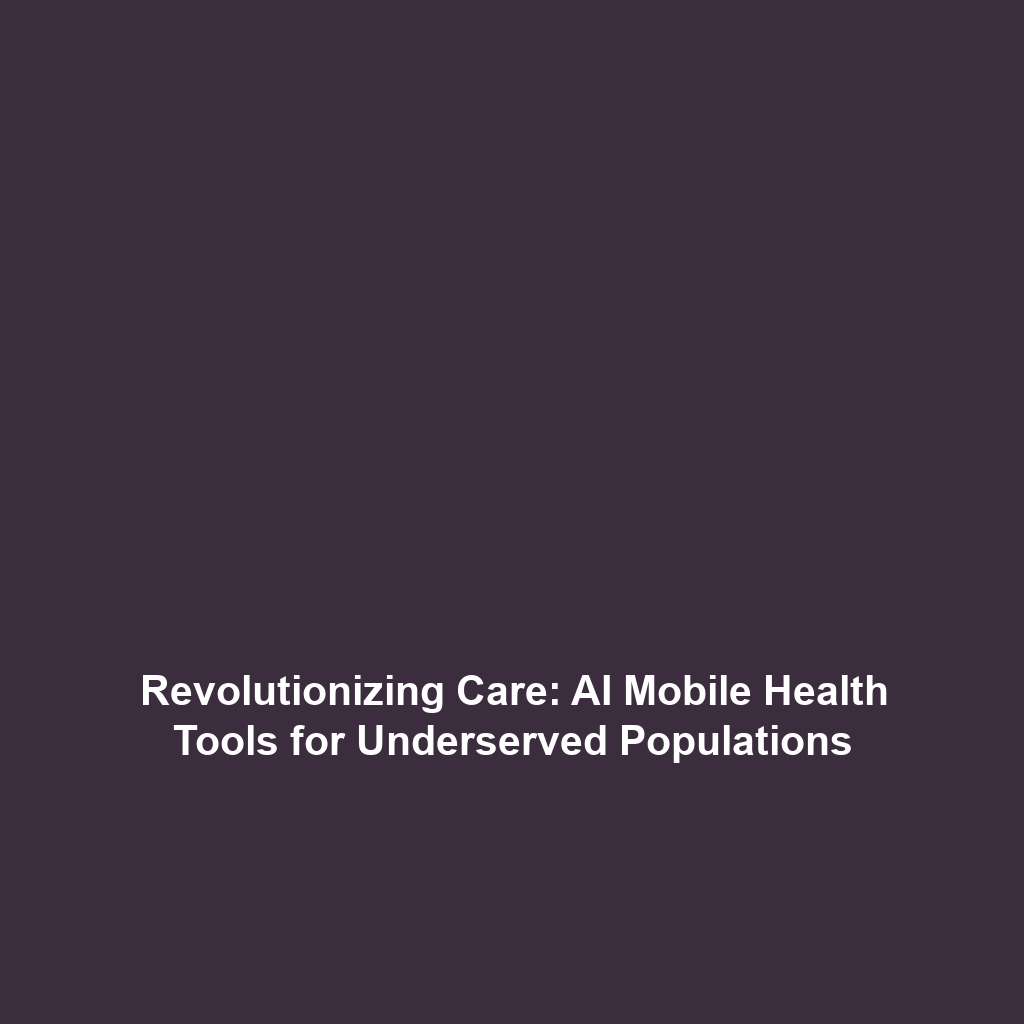How AI-Driven Mobile Health Tools Are Bringing Healthcare Services to Underserved Populations
Introduction
As the integration of technology with healthcare progresses, AI-driven mobile health tools have emerged as a revolutionary solution to enhance healthcare accessibility, especially for underserved populations. These intelligent applications leverage artificial intelligence to provide immediate and personalized healthcare services, breaking down barriers traditionally faced by communities lacking adequate medical resources. The significance of such tools is growing within the broader context of AI in Healthcare, where the need for efficient, scalable, and accessible health solutions has never been more urgent.
Key Concepts
Understanding how AI-driven mobile health tools function is vital to realizing their impact on underserved populations. Key concepts include:
- Artificial Intelligence: The technology that enables machines to mimic human intelligence, enhancing the decision-making processes in healthcare.
- Mobile Health (mHealth): The use of mobile devices and applications to support public health and clinical practice.
- Data Analytics: Methods used to analyze vast amounts of health data, enabling personalized care and treatment recommendations.
These principles fit under the category of AI in Healthcare, as they aim to provide cutting-edge solutions that cater directly to the needs of those who are often left behind in the traditional healthcare system.
Applications and Real-World Uses
The applications of AI-driven mobile health tools are diverse and impactful. Significant examples include:
- Telemedicine Services: AI-enabled platforms facilitate remote consultations, allowing patients in remote areas to access healthcare specialists without long travel times.
- Health Monitoring Apps: These applications track patient vitals and send alerts about potential health issues, enabling proactive care.
- Medication Management Tools: AI algorithms help patients manage their medications through reminders and monitoring adherence, crucial for chronic disease management.
Understanding how AI-driven mobile health tools are used in AI in Healthcare is essential for community health improvement and policy development.
Current Challenges
Despite their potential, several challenges hinder the full realization of AI-driven mobile health tools for underserved populations:
- Data Privacy Concerns: Protecting patient information remains a critical issue.
- Digital Divide: Unequal access to technology may exacerbate healthcare inequalities.
- Regulatory Hurdles: Navigating government regulations can delay the deployment of innovative tools.
Addressing these challenges is imperative for the sustained advancement of AI in Healthcare.
Future Research and Innovations
Future research in AI-driven mobile health tools presents exciting opportunities, such as:
- Enhanced Algorithms: Development of more sophisticated AI models that predict health crises before they occur.
- Integration with Wearables: Combining AI tools with wearable technology could provide comprehensive health monitoring and analytics.
- Community-Centric Platforms: Future innovations will likely focus on building communities within apps to foster support and shared knowledge among users.
These breakthroughs will further enhance the impact of AI in Healthcare, ensuring better health outcomes for underserved populations.
Conclusion
In summary, AI-driven mobile health tools are not only transforming how healthcare services are delivered to underserved populations but also shaping the future of AI in Healthcare. By enhancing accessibility and personalizing treatment, these technologies hold the key to bridging the significant health disparities present today. To learn more about the innovations in AI healthcare, visit our related articles [here](#). The journey towards equitable healthcare begins with informed and proactive steps in utilizing AI advancements.
